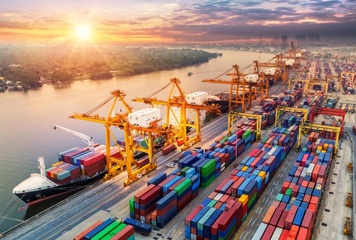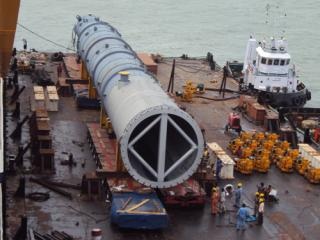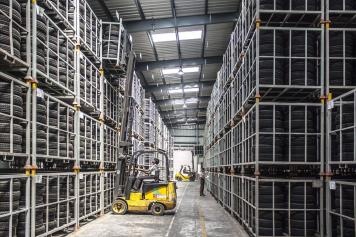Among those present were the Presidents of Mexico, South Korea, South Africa,and the Prime Ministers of Canada and Spain.
During the session, the leaders analysed and put forward directions to deal with shortcomings in global issues, such as climate change, the economic crisis and economic development. Hunger elimination and poverty reduction were also discussed.
The leaders agreed that the global economic crisis had revealed a series of shortcomings in the global governance system, creating a need to reform and enhance governance around the world.
They said that the reform required pro-active efforts from every member of the international community, no matter whether they were big or small.
In a speech, Dung said: "No doubt one of the most urgent demands is to generate greater democratisation in global governance to make it better reflect the role and interests of countries, notably the developing nations."
He emphasised the need to take into consideration both subjective and objective causes when tackling hunger and poverty in a country.
Nations first should make the best of their internal strengths to eliminate hunger and reduce poverty, and developed countries that created famine and poverty for others must share responsibility.
The leaders also touched on ways poor nations could effectively use the aid provided by developed nations, and on possible solutions to reduce gas emissions and turning the G-20 into a new and effective global governance mechanism.
Ties with Belgium
Viet Nam and Belgium should work closer to boost two-way investment as both prime ministers yesterday agreed it remained far from the two countries’ potential.
On the sideline of the World Economic Forum (WEF) Annual Meeting in Davos, Prime Minister Dung held talks with his Belgian counterpart Yves Leterme, aiming to boost bilateral ties in trade, investment, and development assistance.
Last year, Viet Nam-Belgium two-way trade of US$1.1billion was $0.2 billion less than 2008’s figure due to the impact of the global economic crisis.
The two leaders also agreed to co-operate to ensure the success of the upcoming 8th Asia-Europe Meeting (ASEM 8) in October this year when Viet Nam chairs ASEAN and Belgium chairs the EU in the later half of 2010.
Dung highly valued the effect of Belgian development projects in Viet Nam - currently the only Asian recipient of Belgian official development assistance (ODA).
He expected the two sides would start negotiations on the Oriented Co-operation Programme 2010 onward so that it could be ready for signing iduring the 6th meeting of the Viet Nam-Belgium Joint Committee for Development Co-operation later this year.
Speaking highly of Viet Nam’s socio-economic achievements and poverty eradication efforts, the Belgian Prime Minister reaffirmed its support for Viet Nam’s socio-economic reform and extending ties with EU member countries.
He said his government would provide favourable conditions for Belgian businesses to either do business or carry out development projects in Viet Nam.
Dung expressed his wish to receive further support from Belgian Prime Minister in speeding up the signing of the Viet Nam-EU Partnership and Co-operation Agreement (PCA) - a move that would enhance not only Viet Nam- EU ties but particularly the relations between Viet Nam and Belgium.
China talks
Earlier (January 28, local time), Dung met with Chinese Vice Premier Li Keqiang to discuss ways to boost the Viet Nam-China strategic partnership for comprehensive co-operation in the coming period.
Dung was delighted at the fine developments in the friendly relations and comprehensive co-operation between Viet Nam and China.
Both sides agreed to organise the Viet Nam-China Friendship Year 2010 by maintaining high-ranking meetings; enhancing exchanges between ministries, sectors and localities; and speeding up people-to-people diplomacy.
The two acknowledged the importance of imminent signing of the five-year Viet Nam-China Trade and Economic Development Plan, with a focus on infrastructure construction and striving for a two-way trade turnover of US $25 billion in 2010.
The two sides were convinced that the sea-related issues would be reasonably resolved on the basis of the fine bilateral ties and international laws for the sake of peace, stability, co-operation and development in the region.
Press conference
Prime Minister Dung hosted an international press conference briefing on Viet Nam’s chairmanship of ASEAN in 2010 and organising country of 2010 East Asia Economic Forum. He also provided latest updates on Viet Nam’s socio-economic development.
As ASEAN chair in 2010, Viet Nam had selected the theme "Towards the ASEAN Community: from Vision to Action" as its guideline through out the year, Dung said.
Viet Nam would focus on the implementation of ASEAN Charter and the building of ASEAN Community, enhance international co-operation to cope with global economic turbulence, and expand and deepen ASEAN partnership by boosting the role of ASEAN in handling international issues, he said.
Dung called for a joint effort to develop an ASEAN of peace, stability and development in the region and the world as a whole.
Speaking about the Vietnamese economy, Dung said that in 2009 Viet Nam attained a growth of 5.32 per cent, reduced its poverty rate to 12 per cent while maintaining a stable society, expanded external ties and further integrating with the world.
In order for Viet Nam to become an industrialised country by 2020, Dung said the country was actively working on regulating the market economy and creating a fair competition among different economic sectors which will favour production and business operations.
Viet Nam will also maximise all possible resources for the comprehensive building of infrastructure, especially for urban development, energy, healthcare, education, high-quality human resources, application of advanced technology and administrative reform.
In response to a query from the international press about Viet Nam’s 2010 economic growth, Dung forecast it would hover around 7 per cent and increase to between 7-8 per cent in 2011-12.
He reiterated that Viet Nam had targeted an inflation rate of around 7 per cent by using effective financial tools as it successfully did in 2009.
Dung thanked the World Economic Forum for deciding to organise the upcoming 2010 East Asia Economic Forum in Ho Chi Minh City, and pledged to develop an agenda useful not only for businesses, leaders but also academics and the press.
Yesterday he also met with CEOs from leading global companies including as Metro, Prudential and Holcim. — VNS























